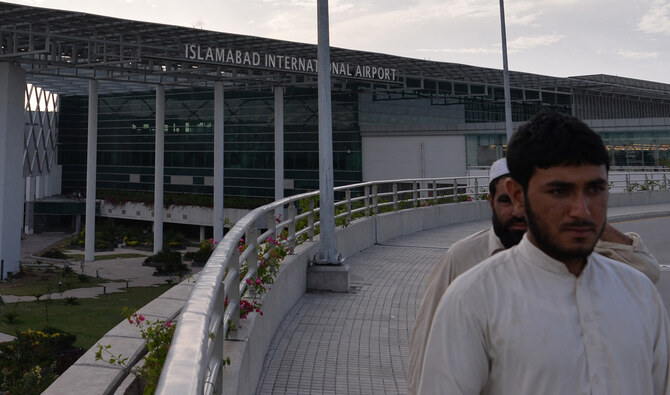KARACHI: Pakistan is considering a proposal to privatize the import of Liquefied Natural Gas (LNG) from the spot market to utilize 200 mmcfd idle capacity, its state minister for petroleum said on Saturday.
Cash-strapped Pakistan has remained out of the spot LNG market since June 2022 due to the skyrocketing prices which hit a record high of $69.9 per million British thermal units (mmBtu) for Asia deliveries in August last year and a financial crunch at home.
Last week, Pakistan LNG Limited (PLL), a state-owned entity mandated to import and procure LNG, received offers for the supply of super chilled fuel from Singapore-based Trafigura in response to a tender it had issued.
However, State Minister for Petroleum Dr. Musadik Malik said the government was considering a proposal to allow the private sector to import gas from the spot market.
“We already have that capacity that we are not using so the proposal, and it’s at the proposal stage, is that we would ask the private sector industrialists to import that 100 to 200 mmcfd of gas by themselves,” Malik told Arab News.
The idea, according to the minister, is to utilize the idle capacity and benefit from low prices of gas in the international market by avoiding lengthy governmental procedures.
“The Government of Pakistan has a governmental procedure of procuring gas and that procedure is a little bit lengthy, a little bit difficult and does not create an opportunity to buy low-cost spot cargoes,” he said.
“So right now, because the supply side, there’s a little bit of a glut on the supply side, there are much cheaper cargoes available in the world market, once we give them this capacity to re-gasify that and give them the license or take the license requirements away from the industry for self-use.”
The minister said the permission to import gas by the private sector would be conditional and they won't be allowed to sell.
“We don’t want one or two people to benefit to get this cheap gas or inexpensive LNG from global markets and sell it at a premium to industrial users,” he said. “We want the industry to benefit. So we are saying this offer is exclusively for self-use only for their own use. They wouldn’t be able to resell it.”
The minister said the move will help generate more jobs, allow industrial expansion and contribute to overall economic growth.
Deal with Azerbaijan
He also informed that his government was going to sign a deal with Azerbaijan on July 24 for the supply of 12 LNG cargoes per annum.
“We have structured a deal with the Government of Azerbaijan whereby Azerbaijan, just the way I am trying to create an opportunity for the private sector industry to purchase their own LNG, would scout for low cost or distressed or spot cargoes every month,” Malik said.
Under the deal, he said, Islamabad would not be bound for compulsory buying of the gas but it would be obligatory for Azerbaijan to offer a low-cost LNG cargo every month.
“This contract is pilot contract for one year, so every month they would make us an offer and it’s completely up to Pakistan whether they accept that low-cost offer or not. We’ve come up with an internal algorithm. It’s a very detailed algorithm,” the petroleum minister said.
“And according to the algorithm, if it suits us, we’ll go forward and purchase that low-cost LNG. If it doesn’t suit us, we wouldn’t.”
The South Asian country currently meets its LNG requirement through long-term supply contracts. The country has two long-term supply contracts with Qatar, one signed in 2016 for 3.75 million metric tons of LNG per annum, and another signed in 2021 for 3 million metric tons.
To a question about heavy influx of smuggled oil in Pakistan from Iran, the minister said Islamabad was incurring up to Rs120 billion losses due to the oil smuggling.
Pakistan has recently imported 100,000 metric ton of crude oil from Russia for the first time as the country looks to diversify its energy sources. However, it awaits the refining report from Pakistan Refinery Limited (PRL).
“I think all the wrinkles have been taken off. The transaction has been structured. The transaction has been executed. The crude has come,” he said. “The crude is being used in PRL. Now it’s only a matter of scaling it so God willing this fiscal year would be the year of scale.”
Around 50 percent of the Russian oil could be refined in the PRL, while other refineries would decide after results were made public, Malik added.
















